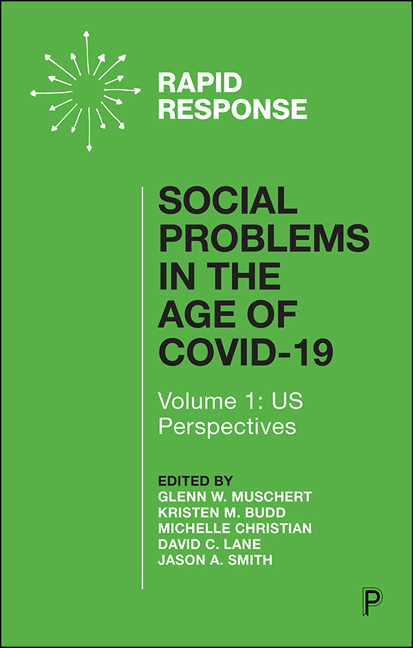2 - The Incarceration State in the Age of COVID-19
Published online by Cambridge University Press: 23 March 2021
Summary
What Do We Know About the Problem?
As COVID-19 started to spread throughout the United States, organizations like Human Rights Watch warned that custodial settings, such as federal and state prisons and immigration detention centers, would be particularly vulnerable to outbreaks. The number of people criminally incarcerated or civilly detained in the US, who are disproportionately racial and ethnic minorities, has grown exponentially in recent decades. On average, roughly 2.3 million people are confined annually nationwide, with 1.5 million people incarcerated in state and local prisons and 42,000 in detention facilities. These individuals are more likely than not from communities already enduring perpetual social and health inequalities. Custodial settings compound the consequences of these inequalities where routine overcrowding, unsanitary conditions, lack of basic hygiene products, and limited and inadequate medical care function to exacerbate vulnerabilities for a population that suffers from disproportionately high rates of chronic disease and pre-existing medical conditions. Together, institutional characteristics and individual vulnerabilities pose a formidable public health challenge whereby the conditions of confinement present a perfect breeding ground for the contraction and spread of communicable illnesses exacerbated by the COVID-19 global pandemic.
While federal and state governments have implemented strategies to fight the spread of COVID-19, such as stressing the importance of social distancing (e.g., staying at least six feet from other persons, avoidance of group gatherings or crowded places), the actual implementation of these recommendations is highly problematic for those in US custodial settings given constraints on physical space and resources. This is particularly true in states where prisons and immigration detention centers have dangerous levels of overcrowding, unsanitary conditions, and a lack of adequate medical care. Facilities are also far from state-of-the-art and instead have outdated infrastructures, poor ventilation, and filtration systems that promote the flow of airborne diseases. Daily life of incarcerated and detained individuals involves a communal lifestyle with shared living and bathroom facilities and food service. Moreover, social processes within and between custodial settings make the spread of COVID-19 more likely. For instance, prison-to-prison transfers heighten the risk of spreading the virus.
- Type
- Chapter
- Information
- Social Problems in the Age of COVID-19 Vol 1Volume 1: US Perspectives, pp. 13 - 24Publisher: Bristol University PressPrint publication year: 2020



